Featured
 Think Like a Zebra. By Ronald J. Sheehy, Editor / Race Inquiry Digest
Think Like a Zebra. By Ronald J. Sheehy, Editor / Race Inquiry Digest
While visiting South Africa, I once asked our host over dinner why Africans had never domesticated the zebra. After all, they are horses of a kind—surely they could be put to work, ridden, or used for transport. My question was met with laughter around the table. Our host’s wife, amused, suggested we look it up.
A quick search revealed an unexpected answer: zebras have evolved to be temperamentally incapable of being tamed. Unlike horses, they resist domination. They wake each morning to what could be called “the killing fields,” surrounded by predators that see them as dinner—especially lions. Their very survival depends on vigilance, distrust, and an unyielding instinct for freedom. Read more
Related: Are We Losing Our Democracy? By The Editorial Board / NYT
Related: Trump’s Plan Is Now Out in the Open. By Peter Wehner / The Atlantic
The Week’s Top Stories
Political / Social
 Donald Trump Has Amassed the Powers of a King. By J. Michael Luttig / The Atlantic
Donald Trump Has Amassed the Powers of a King. By J. Michael Luttig / The Atlantic
In the normal course of history, the president of the United States is a figure who inspires optimism in the American people. The 47th president prefers to stir feelings of fear, vulnerability, hopelessness, and political inevitability—the sense that he, and only he, can rescue the nation from looming peril.
Since his second inauguration, Donald Trump has seized authoritarian control over the federal government and demanded the obedience of the other powerful institutions of American society—universities, law firms, media companies. The question weighing heavily on the minds of many Americans is whether Trump will subvert next year’s midterm elections or the 2028 presidential election to extend his reign. Read more
Related: There’s a Reason Trump Reminds His Targets of a Mafia Don. By Thomas B. Edsall / NYT
Related: The Thread Tying Together Everything Trump Does. By Ben Rhodes / NYT
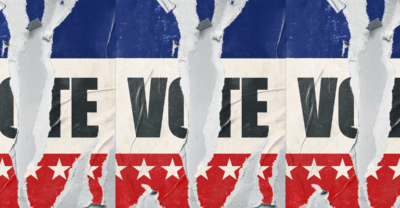 Donald Trump’s Plan to Subvert the Midterms Is Already Under Way. By David A. Graham / The Atlantic
Donald Trump’s Plan to Subvert the Midterms Is Already Under Way. By David A. Graham / The Atlantic
Our election system is reaching a breaking point.
Imagine for a moment that it’s late on Election Day, November 3, 2026. Republicans have kept their majority in the Senate, but too many House races are still uncalled to tell who has won that chamber. Control seems like it will come down to two districts in Maricopa County, Arizona. ICE agents and National Guardsmen have been deployed there since that summer, ostensibly in response to criminal immigrants, though crime has been dropping for several years. Read more
Related: Red states are preparing for an end to the Voting Rights Act. By Andrew Howard / Politico
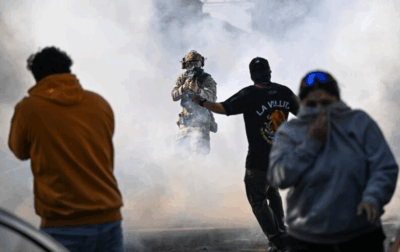 The Fate of Our Cities Is Now in the Supreme Court’s Hands. By Elie Mystal / The Nation
The Fate of Our Cities Is Now in the Supreme Court’s Hands. By Elie Mystal / The Nation
In this week’s Elie v. U.S., The Nation’s justice correspondent warns of an upcoming SCOTUS case—and hails the wisdom of Uncle Iroh.
The question of whether Donald Trump has the authority to deploy federal troops in American cities—in violation of the Posse Comitatus Act—is heading to the Supreme Court. This week, Trump asked his complicit Supreme Court justices to overturn a restraining order barring him from waging war on Chicago. Read more
Related: John Roberts betrayed America for Donald Trump. By Chauncey Devega / Salon
 US citizens on the threat of being racially profiled by ICE: ‘I carry my passport card at all times.’ By Ava Macha / The Guardian
US citizens on the threat of being racially profiled by ICE: ‘I carry my passport card at all times.’ By Ava Macha / The Guardian
Trump’s immigration crackdown is upending the daily routines of US citizens and permanent residents of color
While racial profiling has long been a fixture of US law and immigration enforcement, the feeling that anyone could be targeted for the way they look or the language they speak has become acute in recent months. In September, the supreme court’s conservative majority sided against Los Angeles area plaintiffs who said “roving” immigration patrols were violating their fourth amendment rights by stopping people on the basis of race, language, employment or location. Critics say the ruling effectively “legalized racial profiling”. Read more
Related: Being Latino in the United States Should Not Be a Crime. The Editorial Board / NYT
 How SNAP Cuts Target The Survival Of Black Families. By Josie Pickens / Newsone
How SNAP Cuts Target The Survival Of Black Families. By Josie Pickens / Newsone
Food is not a privilege. It is a human right, and when the government forgets that truth, it’s up to the people to remember.
When the richest nation on Earth chooses to starve its citizens instead of feeding them, that decision isn’t about government mismanagement; it is moral, and perhaps even criminal, neglect. Beginning Nov. 1, millions of Americans, especially Black families, might face empty food benefits cards and emptier kitchens as the nation’s food assistance program, the Supplemental Nutrition Assistance Program (SNAP), teeters on collapse during yet another budget standoff in Washington. Read more
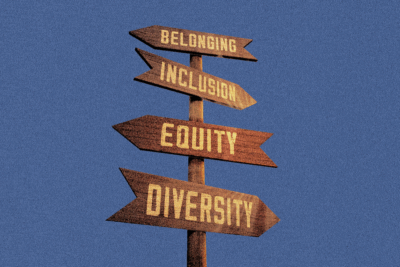 The battle over DEI is messier than ever for companies. By Taylor Telford / Wash Post
The battle over DEI is messier than ever for companies. By Taylor Telford / Wash Post
After years of whiplash over diversity policies, businesses remain caught between conflicting regulatory requirements, frustrated consumers and their employees.
Tensions over DEI continue to roil corporate America after five years of whiplash. Such initiatives have long faced criticism from conservatives who view them as a form of discrimination with deep political and ideological undertones. But the Trump administration’s move to end what it called “illegal” DEI within 48 hours of taking office in January raised the stakes for employers, prompting many of them to jettison representation goals for suppliers and workforces as well as other DEI policies. Read more
Education
 California’s Race-Neutral Strategies Offer Blueprint for Expanding College Access. By Jamal Watson / The Eduledger
California’s Race-Neutral Strategies Offer Blueprint for Expanding College Access. By Jamal Watson / The Eduledger
As colleges nationwide grapple with the Supreme Court’s 2023 ban on race-conscious admissions, a new report from the Institute for Higher Education Policy (IHEP) examines California’s 27-year experience navigating similar restrictions—offering lessons for institutions seeking to expand access while maintaining diversity.
The research brief documents how California has worked to broaden college opportunity since voters approved Proposition 209 in 1996, which effectively banned affirmative action in the state’s public colleges and universities. Read more
 Elite Colleges Grow a Spine and Reject Trump’s Authoritarian “Compact.” By Perry Bacon / TNR
Elite Colleges Grow a Spine and Reject Trump’s Authoritarian “Compact.” By Perry Bacon / TNR
Several elite U.S. colleges, including Brown, Dartmouth, and the Massachusetts Institute of Technology, have all rejected a “compact” with the Trump administration, in which the schools might have received additional federal funding as long as they implemented a number of conservative policies on campus, such as restricting the rights of transgender students.
The schools’ rejection of the compact is a very positive development, said Ryan Enos, a professor of government at Harvard. In the latest edition of Right Now, Enos argued that colleges are finally realizing both that they must stand up for themselves and that they will be more effective in resisting Trump if they coordinate and collaborate with one another. Read more
 Black Student Enrollment Plummets Across South as Federal Pell Grant Funding Drops $10 Billion. By Jamal Watson / The Eduledger
Black Student Enrollment Plummets Across South as Federal Pell Grant Funding Drops $10 Billion. By Jamal Watson / The Eduledger
A new research brief reveals that more than half a million students have been lost from higher education institutions across the Southern United States over the past decade, driven in large part by dramatic cuts to federal Pell Grant funding that disproportionately affect Black students and low-income families.
“The Widening College Access Gap” documents a sharp decline in Black student enrollment across public institutions in the region, with researchers linking the enrollment losses directly to inconsistent federal funding and state budget cuts. Read more
 America is sliding toward illiteracy. By Idrees Kahloon / The Atlantic Online
America is sliding toward illiteracy. By Idrees Kahloon / The Atlantic Online
Declining standards and low expectations are destroying American education.
We are now seeing what the lost decade in American education has wrought. By some measures, American students have regressed to a level not seen in 25 years or more. Test scores from NAEP, short for the National Assessment of Educational Progress, released this year show that 33 percent of eighth graders are reading at a level that is “below basic” — meaning that they struggle to follow the order of events in a passage or to even summarize its main idea. Read more
 MacKenzie Scott Gave More Than $500M to Historically Black Colleges. Here’s How the Donations Made an Impact. By Jillian Frankel / People
MacKenzie Scott Gave More Than $500M to Historically Black Colleges. Here’s How the Donations Made an Impact. By Jillian Frankel / People
In 2020, according to a report from Rutgers University, the philanthropist and ex-wife of Jeff Bezos gave a whopping $560 million to 23 HBCUs scattered across the country.
Analyzing the immediate impact of Scott’s donations, Rutgers researchers found that, “on average, the median enrollment of new students was more than 300 students greater for HBCUs that received funding when compared to the median enrollment for those that did not receive funding.” Read more
World
 ‘Drug Boat’ Strikes Prompt Questions about Human Dignity, Executive Power. By Elizabeth Neumann / Christianity Today
‘Drug Boat’ Strikes Prompt Questions about Human Dignity, Executive Power. By Elizabeth Neumann / Christianity Today
Since early September, the Trump administration has struck suspected drug-carrying boats in the Caribbean Sea, provoking Latin American nations who see the attacks as a direct affront. Thus far, the administration announced, US forces have attacked ten boats and killed at least 43 people. Last week, the administration expanded its purview, attacking two boats off the coast of South America in the eastern Pacific Ocean
After the first boat strike, The Bulletin sat down for two conversations to see how Christians can consider this news through the lens of human dignity—one with senior contributor Mike Cosper and editor at large Russell Moore, the other with homeland security expert Elizabeth Neumann. Read more
Related: U.S. boat strikes spread fear across the Caribbean. By Amanda Coletta / Wash Post
 Israel Carries Out New Strikes In Gaza After Asserting Commitment To Ceasefire. By Reuters and HuffPost
Israel Carries Out New Strikes In Gaza After Asserting Commitment To Ceasefire. By Reuters and HuffPost
Israeli planes and tanks pounded areas in eastern Gaza on Thursday, Palestinian residents and witnesses said, a day after Israel said it remained committed to a U.S.-backed ceasefire despite launching more lethal bombardments in the territory.
Witnesses said Israeli planes carried out 10 airstrikes in areas east of Khan Younis in the southern Gaza Strip, while tanks shelled areas east of Gaza City in the north. No injuries or deaths were reported. Read more
 The U.S. Is on Track to Lose a War With China. By Phillips Payson O’Brien / The Atlantic
The U.S. Is on Track to Lose a War With China. By Phillips Payson O’Brien / The Atlantic
Modern warfare is decided by production capacity and technological mastery, not by individual valor.
In his address to generals and admirals late last month, Secretary of Defense Pete Hegseth vividly described his vision of how wars are won. Soldiers and sailors are prepared to ship out “in the dead of night, in fair weather or foul, to go to dangerous places to find those who would do our nation harm, and deliver justice on behalf of the American people in close and brutal combat if necessary,” Hegseth said. If the United States goes to war with China, its closest competitor and greatest geopolitical challenger, the bravery of soldiers on both sides will be largely irrelevant. Since the beginning of the 20th century, industrial-scale wars have been won through superiority in production capacity, logistics, and technological mastery. Read more
Ethics / Morality / Religion
 Religious leaders mount ‘moral counter’ to Trump’s ‘distortions of Christian values.’ By Lesley Abravanel / MSN
Religious leaders mount ‘moral counter’ to Trump’s ‘distortions of Christian values.’ By Lesley Abravanel / MSN
A coalition of Christians leaders are challenging President Donald Trump’s approach to immigration, civil rights and poverty, saying his “distortions of Christian values sanctify exclusion and fear,” according to Axios.
“Moderate faith networks could give Democrats an opening to go after an estimated 15 million ‘persuadable Christians,'” said Doug Pagitt, a pastor and executive director of the progressive Christian group Vote Common Good. Read more
Related: Faith And Politics: Christians’ Complicity In Trump’s Agenda. By Henry Karlson / Patheos
 Kwame Anthony Appiah’s Varieties of Religious Experience. By Brad East / The Chronicle of Higher Ed.
Kwame Anthony Appiah’s Varieties of Religious Experience. By Brad East / The Chronicle of Higher Ed.
Neearly 25 years ago this publication profiled a bright-burning intellectual star named Kwame Anthony Appiah. It was the spring of 2002, and Appiah was in the process of moving from Harvard to Princeton. Ten years prior, following a decade of technical philosophical writing, he had published In My Father’s House: Africa in the Philosophy of Culture, which made his name.
Appiah’s latest offering is titled Captive Gods: Religion and the Rise of Social Science. It is a revision of the Terry Lectures he gave at Yale University in 2016-17. The Dwight Harrington Terry Foundation Lectures on Religion in the Light of Science and Philosophy have a distinguished pedigree going back to 1923; previous lecturers include Carl Jung, John Dewey, Stephen Jay Gould, Peter Singer, and Marilynne Robinson. Read more
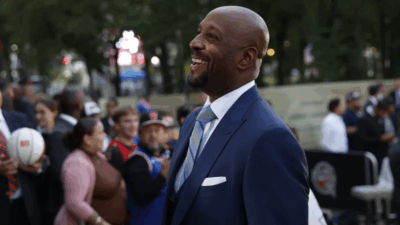 How faith drives former NBA star Alonzo Mourning’s goodwill. By Martenzie Johnson / Andscape
How faith drives former NBA star Alonzo Mourning’s goodwill. By Martenzie Johnson / Andscape
When asked why he’s dedicated this stage of his life to building affordable homes for families and senior citizens, Hall of Fame basketball player Alonzo Mourning had a simple response. It’s not just because of the money, nor is it only about being the right thing to do.
As a man of faith, Mourning believes we’re all created by a god whose qualities we all can inherit. Loving your neighbor as yourself is what Christians are taught, which takes on a whole new meaning when it comes to housing shortages and homelessness, both of which are endemic to American society. Read more
Historical / Cultural
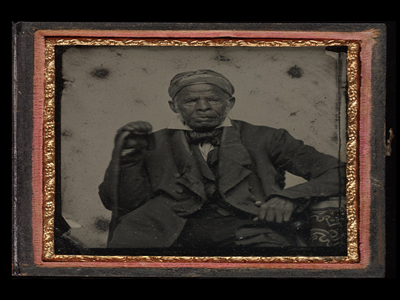 The Wish to Be Seen.
The Wish to Be Seen.
The first time I saw a photograph of Omar ibn Said, when I was a young photographer, I felt as if he was speaking to me. I took away one simple instruction: Remember.
Born in 1770 in what is now Senegal, ibn Said was a member of the Fula people, a devout Muslim and a scholar. When he was 37, he was seized in a raid on his village. He was most likely forced onto a boat that carried him to Saint-Louis, the city that would become the capital of French West Africa, and, eventually, across the Atlantic to Charleston, S.C. He was first enslaved there, and later in North Carolina, where he died in 1863. Read more
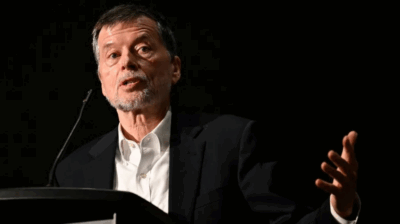 Ken Burns says ‘American Revolution’ doc could help US ‘with the divisions of today.’ By Judy Kurtz / The Hill
Ken Burns says ‘American Revolution’ doc could help US ‘with the divisions of today.’ By Judy Kurtz / The Hill
Ken Burns says his latest epic documentary shows America has been deeply divided since its earliest days, but that the story of the revolution, and the war itself, could “put the ‘us’ back in the U.S.” We were divided, really divided back then,” Burns told ITK of the time leading up to the Revolutionary War in the 1770s.
“It’s a really dynamic saga — I don’t know of any other way to put it — much like the dramatic stories that we hear, but it’s all true. And I think it’s really important as we approach the 250th [anniversary] of the Declaration [of Independence] signing, that we understand what our origin story is,” he said. Read more
 How Politics Is Changing the Way History Is Taught. Dana Goldstein / NYT
How Politics Is Changing the Way History Is Taught. Dana Goldstein / NYT
History lessons are being wiped from the internet, and California is retreating from ethnic studies, as education swings away from curriculums that are seen as too progressive.
To supporters of these changes, they are a necessary corrective to what they see as a leftward tilt in the education establishment. But these developments have also set off alarms among free speech advocates, as the Trump administration pushes to punish speech it dislikes and to impose its patriotic vision of American history on schools. Read more
 How Jesse Jackson set the stage for today’s political landscape. By Daniel Pryer / Wash Post
How Jesse Jackson set the stage for today’s political landscape. By Daniel Pryer / Wash Post
In her biography “A Dream Deferred,” CNN anchor Abby Phillip explores Jesse Jackson’s career and legacy.
Many in my and Abby Phillip’s generation — we’re both in our 30s — would associate Jackson’s legacy with the power of protest, the importance of civil rights advocacy and his reliable presence at nearly every major racial incident across the country for a half-century. Less attention has been paid to Jackson’s presidential campaigns in the 1980s, which created a blueprint for many of the political trends driving American politics today. “A Dream Deferred: Jesse Jackson and the Fight for Black Political Power” is Phillip’s splendid effort to give this political chapter of Jackson’s life the recognition it rightfully deserves. Read more
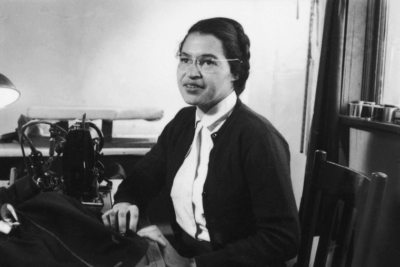 Rosa Parks and Helen Keller statues will be unveiled at the Alabama Capitol. By AP and NBC News
Rosa Parks and Helen Keller statues will be unveiled at the Alabama Capitol. By AP and NBC News
The monuments honoring the two famed native Alabamians will be the first statues of women on the lawn of the Alabama Capitol.
The monuments honoring the two famed native Alabamians — one who fought against racial segregation and one who fought for the rights of people with disabilities — will be the first statues of women on the lawn of the Alabama Capitol. The additions will reflect a broader history of the state as they are added to the grounds that also include several tributes to the Confederacy, which was formed at the site in 1861. Read more
Sports
 The Sports-Betting Disaster. By Danny Funt / The New Yorker
The Sports-Betting Disaster. By Danny Funt / The New Yorker
How the rise of “prop” bets helped create the conditions for the N.B.A.’s latest gambling scandal. Miami Heat guard Terry Rozier, charged with involvement in a wagering scheme in which he supposedly faked a foot injury to underperform.
When I interviewed the N.B.A. agent Daniel Hazan last year, he warned that the legalization of sports gambling was a disaster waiting to happen. Athletes have so many opportunities to manipulate games and swing the outcome of a bet, he explained—especially the “prop” bets on individual player performance which have become online sportsbooks’ biggest money-maker. “It’s just another added temptation that’s right in your face at all times that I don’t want the guys to deal with,” he said. Read more
Related: The NBA Indictments Are Not What They Seem. By Sally Jenkins / The Atlantic
 I played with 42-year-old Jerry Rice in the NFL. This is the lesson I carry with me. By Jerheme Urban / The Athletic
I played with 42-year-old Jerry Rice in the NFL. This is the lesson I carry with me. By Jerheme Urban / The Athletic
When Jerry Rice came to the Seattle Seahawks in 2004, he would literally lay his practice uniform on the ground every day before he got dressed. I’d never seen anyone do that before.
Then he’d stand there and look at it. Essentially, he’d say: I’ve got all my pieces. I’m going to go out and I’m going to look good, I’m going to feel good, and I’m going to have a great practice. He caught a lot of flak, in a joking manner, from guys. But it was about the preparation — the reverence he had for it. His reverence for preparation was absolutely incredible, and it never changed. It was a lesson that I carry with me to this day. Read more
 From Russell Wilson to Justin Fields, the legacy of cheap shots at Black QBs endures. By Ken Makin / Andscape
From Russell Wilson to Justin Fields, the legacy of cheap shots at Black QBs endures. By Ken Makin / Andscape
Even with African American quarterbacks making unprecedented leaps, coaches, upper management still have time for disrespect. Quarterback Russell Wilson (right) responded on social media after what he perceived as a jab from his former head coach Sean Payton (left).
The Philadelphia Eagles are the reigning Super Bowl champions and have a 5-2 record, but you would never know it with the weekly referendum on Jalen Hurts’ play. In the Eagles’ first four games, all wins, folks complained because he didn’t throw the ball all over the yard. And even with a sterling performance against the Vikings and an average of 296 yards passing over his past three games, he still garners much of the blame for the team’s “vanilla” offense. Read more
 Why Can’t the N.B.A. Move On from Its Old Stars? By Louisa Thomas / The New Yorker
Why Can’t the N.B.A. Move On from Its Old Stars? By Louisa Thomas / The New Yorker
The outsized relevance of the league’s oldest stars is not new. LeBron James is turning forty-one this year. Stephen Curry is thirty-seven, and will be playing for the Warriors alongside Al Horford (thirty-nine), Jimmy Butler (thirty-six), and Draymond Green (thirty-five). And the Warriors are not even the oldest team in the league; that would be the Los Angeles Clippers, God help them. The Rockets are betting that Durant (37), despite being well past the retirement age of most players, can elevate them into genuine title contenders.
Athletes across numerous sports have been prolonging their careers, with more focus on nutrition, training techniques, and financial incentives. But the trend seems especially noticeable right now in basketball. Read more
Related: LeBron James and the complicated art of saying goodbye. By Justin Tinsley / Andscape
Site Information
Race Inquiry Digest is published every Saturday. Some articles may be AI-assisted. Articles appearing in Race Inquiry Digest are archived on our home page. A collection of Books, Podcasts, and Video Favorites can also be found there.
On each page you can register your email to receive notifications of new editions of Race Inquiry Digest.
Click here for earlier Digests.
The site is fully searchable by name or topic—see the Search option at the top of the page. At the bottom of each Digest page, you’ll find custom share buttons that let you email the Digest or post it directly to your Facebook, LinkedIn, or X (formerly Twitter) accounts.